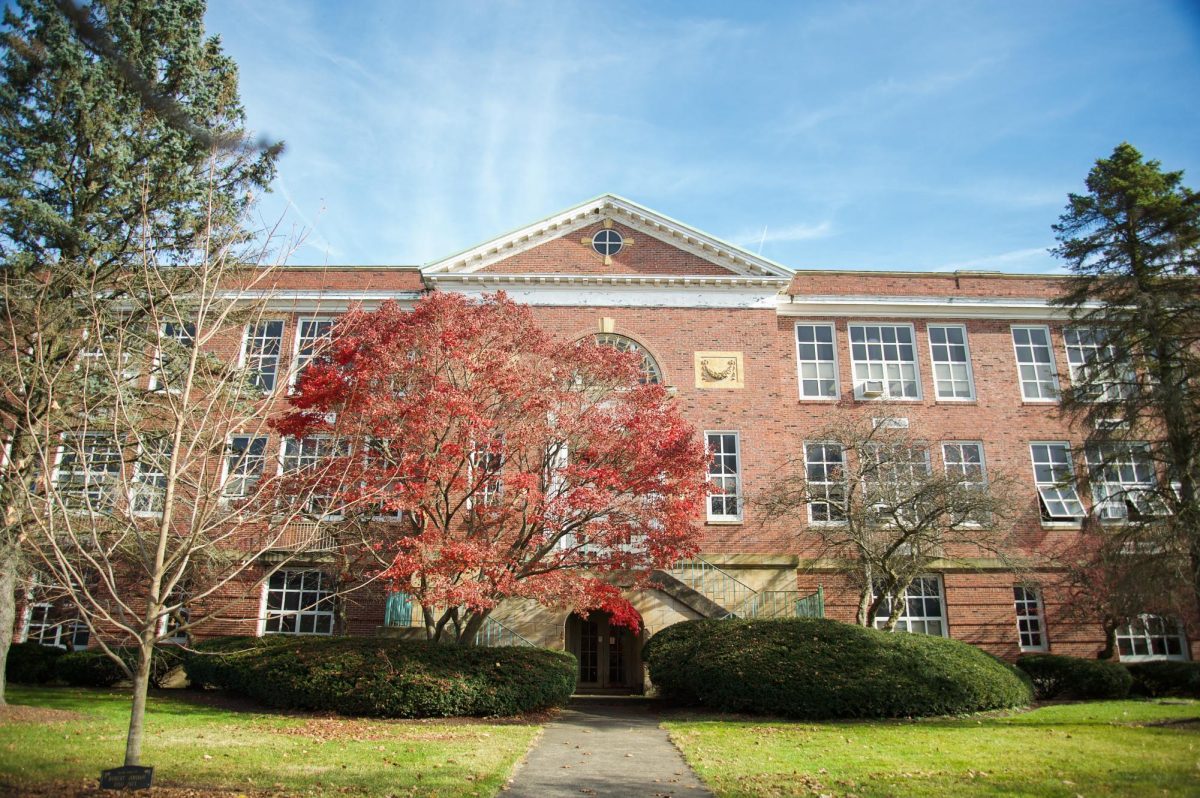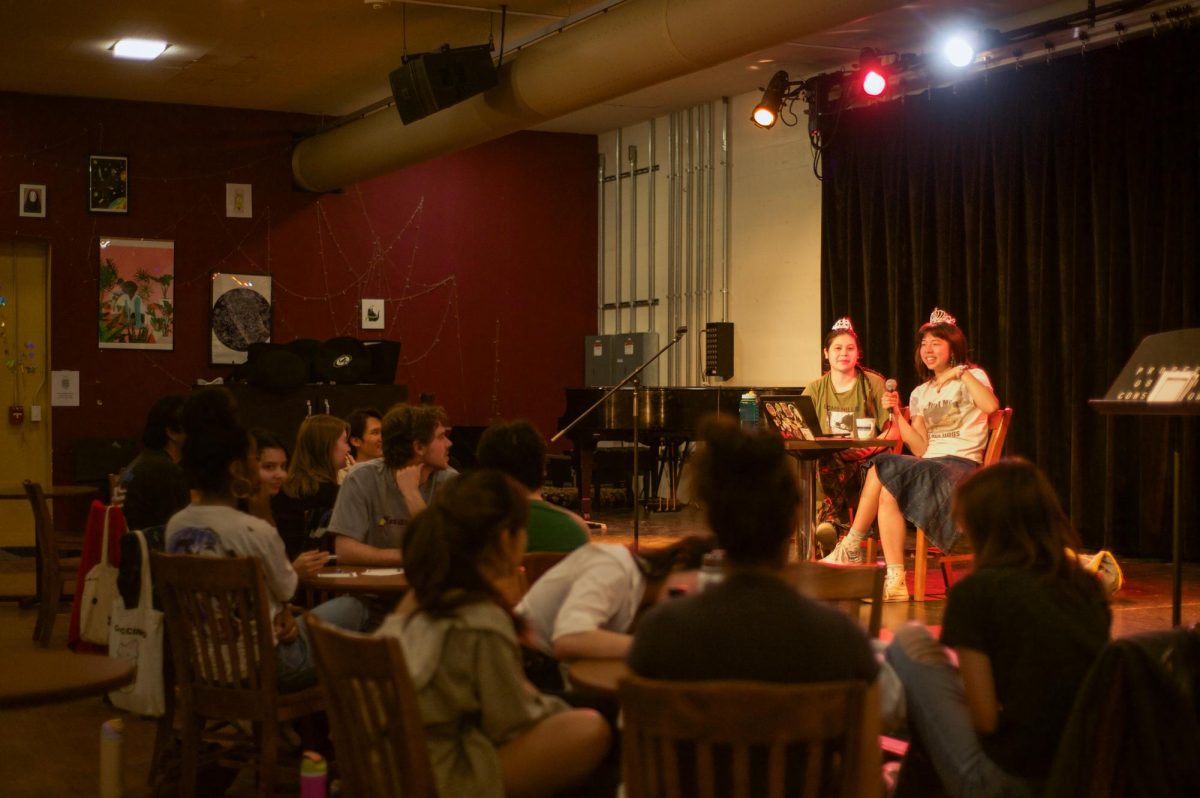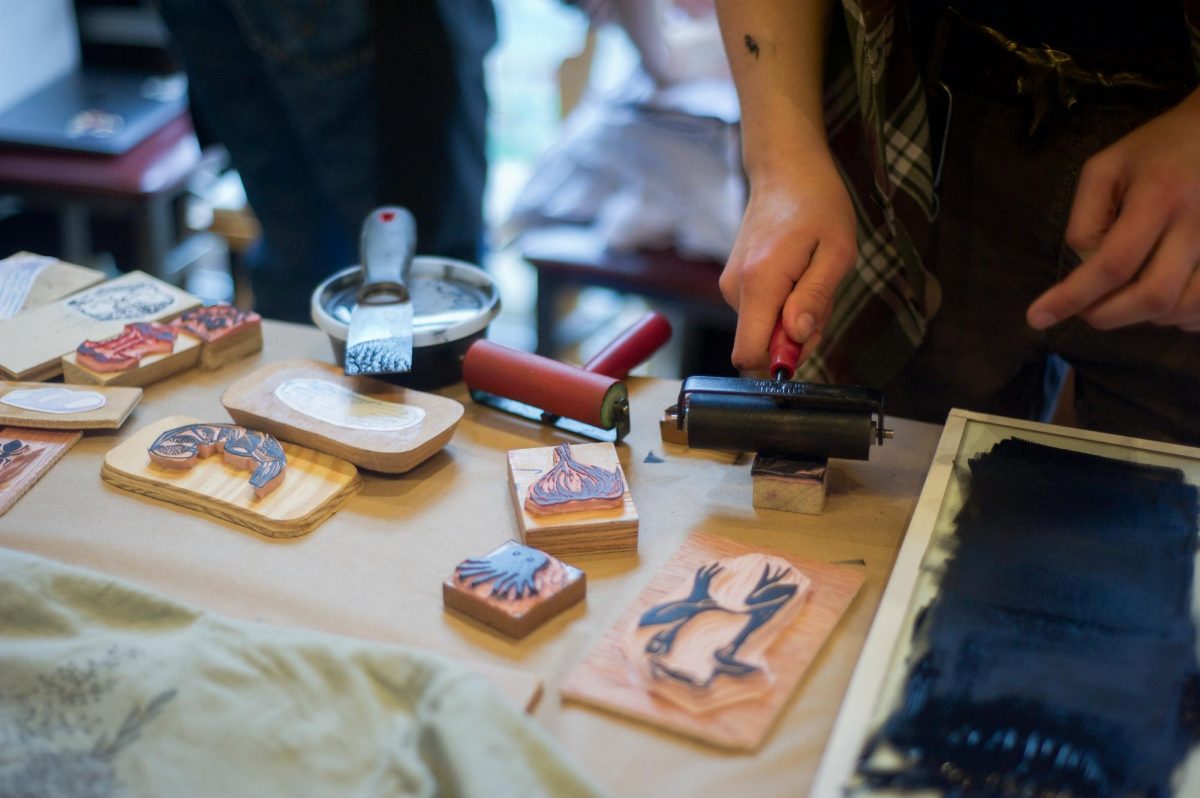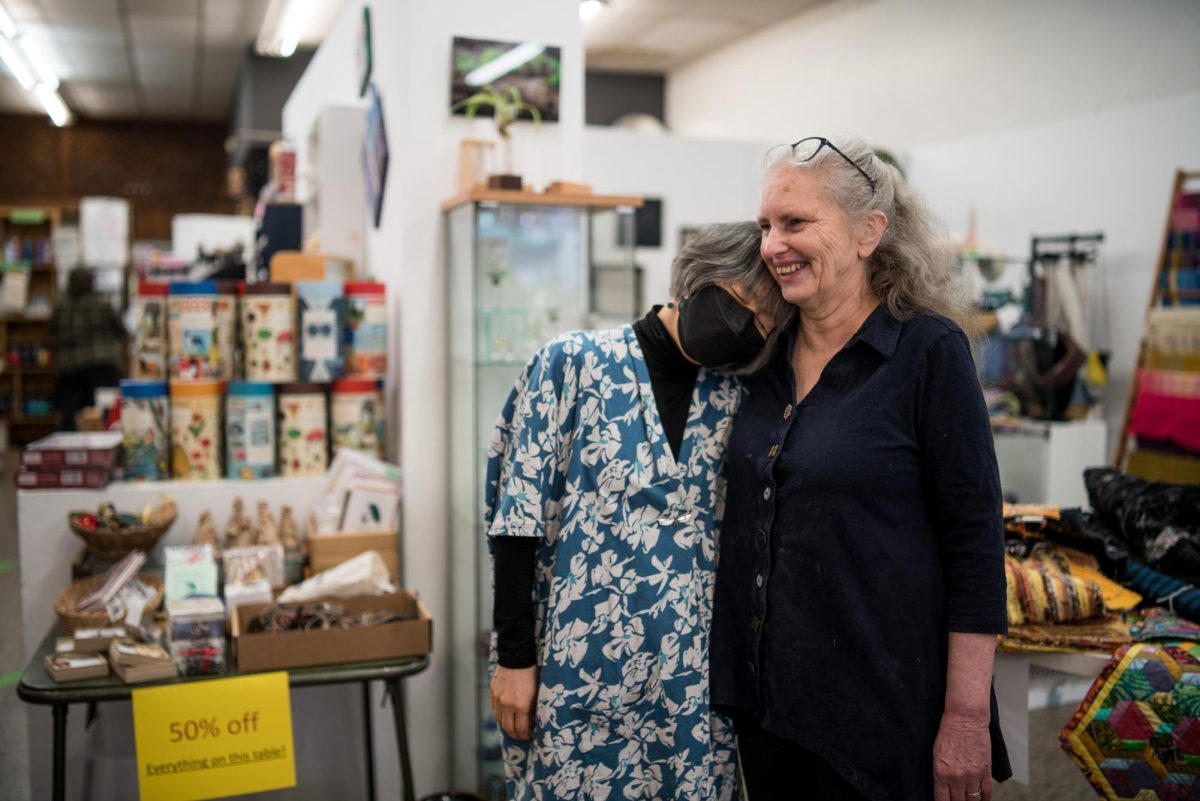The Writers in the Schools program wrapped up Nov. 9, as Oberlin students finished up two weeks of classes teaching poetry and providing writing prompts to sixth graders at Langston Middle School.
“Writers in the Schools, it’s this teaching artists’ residency, wherein eight students from Oberlin College — most of them are Creative Writing majors, but not all of them — we go into Langston Middle School, and we basically formulate lessons around a particular poem that we are attracted to, that we think is a good fit for a middle school audience,” College fourth-year and WITS participant Alonzo Rangel said. “Then we have the students respond to our lesson with poems of their own. … When we start off, we’re just looking for poems, just looking for good poems that we think could work, poems that have a good hook to them — an invitation to write is what we call it. Something we can form one of those out of.”
After half a semester preparing lesson plans and poems for the sixth graders, the eight Oberlin students paired off to guide individual 45-minute class sessions. Now that the residency is over, the Oberlin students are reflecting on their experiences in class and preparing a print anthology of each sixth grade class’ poems.
“What we’re doing right now is we are compiling all the poems that the students have written in response to our poems, and we’re going to be editing them into anthology booklets that we’re then going to go back to their classrooms, and we’re gonna hand them out,” Rangel said. “Each kid gets an anthology. … Some of the anthologies even have illustrations that the kids included, which is really cute.”
Assistant Professor of Creative Writing Elizabeth Lindsey Rogers, OC ’07, is leading this program for the first time this year after shadowing the founder, Assistant Professor Emeritus of Creative Writing Lynn Powell, for the past two years.
“Lynn Powell, who was the founder of the program, and who was really the big mover and shaker for many years, retired in June,” Rogers said. “I had participated previously in a residency, and I had watched Lynn unofficially for the past couple years and how she did things, so I kind of had a sense of how I might do it. And then it’s a lot of trial and error, in terms of getting the residencies together, getting the students ready, trying out different lesson plan possibilities; the process can be a little messy, but ultimately all my students were really prepared, I think, when they went over there, and that’s part of what made the experience good. You have to really be able to respond to what’s happening in the moment when you’re teaching over there, and you can’t do that if you don’t have a sense internally of what your next move is.”
Despite the challenges of taking over the program, Rogers feels confident that their students were as prepared as possible for the teaching experience.
“I focused so much this semester on the nuts and bolts and getting my students ready and making sure we had everything in order, and making sure our lessons were appropriate, I was worried that I might not get to experience the wonder,” Rogers said. “But I did, ultimately, because we were so prepared when we went over there, we had the scaffolding in place to allow the good experience to materialize.”
Rangel says that Rogers’ nerves never showed through.
“In class today, she was talking about how this was a really scary experience for her, trying to hold up the standards of this program that Professor Powell had been holding up for many years,” he said. “It was funny because we didn’t see any of that fear in her. She was very forthright and professional in all of her feedback that she gave to us. It never seemed like she was faltering. But she was right in the thick of it with us. But just hearing that she had the same anxieties that we did, it felt very humanizing by the end of it, that we’re always learning as teachers; there’s never a point where you stop learning and you feel totally confident and totally perfect in everything that you present to the kids.”
The experiences in WITS can be profound for both Oberlin students and Langston students. Skye Kaminski, who teaches English Language Arts to the entire sixth grade class at Langston, has enjoyed watching the program’s effect both as a teacher and a parent.
“I think it is a very successful program,” she said. “It is very rare to see a sixth-grade student come in and see themselves as a writer of poetry, see themselves as a poet. Or really, even a writer in general, they just don’t see themselves as writers yet, they’re too new to the world! … You can tell that it does have a strong impact on their writing; they get more comfortable with using literary devices in their writing, they’ll experiment with figurative language, they’ll experiment with imagery, all these things I think they were intimidated by before the program, it becomes less scary, and they’re more willing to try these things, and it does follow them into the future.”
Rogers says they try to keep the sixth-grade students open-minded to allow them as much creative freedom as possible.
“We don’t really give them too many rules, which I guess they don’t necessarily have a lot of choice in all the assignments that they do in their day to day lives,” Rogers said. “For a lot of the middle school students, this is an opportunity to use language in a different way than they are maybe normally used to. There’s a lot of kids that really believe they don’t have imagination or they can’t write; I’m not exactly sure where that comes from, but this is an opportunity to really get every single student up there to succeed in terms of writing. It can be quite profound; it can be even a sort of awakening for some of them.”
The Oberlin students, too, enjoy a unique experience with community-based immersive learning.
“I think this class really solidified my resolve to be a teacher,” Rangel said. “I grew up around teachers; my mom was a daycare provider, so I was hardwired to enjoy my time around kids. Seeing how we were able to help kids unlock their potential for creativity — there’s something really special about a child’s creativity that gets [dampened] as you grow older — you learn to conform more to societal expectations, and as a result you’re not really accessing that part of your brain as much. I really learned to appreciate the value of that really special type of creativity. I’d love to be an English teacher and do this every day.”
The program can also help to bridge the gap between the College students and the Oberlin community.
“This program is really amazing because I feel like in our day-to-day life at Oberlin, there’s the College and there’s the town, and a lot of students, unless they’re very involved in other kinds of community outreach, they don’t really have a sense of the place that they’re living and who else lives here,” Rogers said. “Students mentioned this yesterday in the kind of debrief that we had about the residencies. The middle school is just right over there! It’s literally on the other side of Tappan. And this program really allows people, students here, especially Creative Writing majors and other people who study writing and literature, they use all their skills from the major, and all of their knowledge, but then they have to transform it into action, and they have to also shape it for a totally different audience.”
Rogers says they are excited to return to the program next year with more experience.
“I’m really looking forward to going in for the second year, having had a year under my belt, with more confidence and knowledge about the process,” she said. “Even though I had taught over there before, a lot of what I was testing out and what I was telling the students was still kind of hypothetical. Now, I’ve seen a year and what happened, so I’m looking forward to feeling like I have more experience and knowledge next time.”
Kaminski similarly has high hopes for the future of the program.
“I think it definitely helps to build a strong collaboration, and what can be a lasting relationship between Oberlin City Schools and Oberlin College,” Kaminski said. “I hope it continues well into the future because I think it is helping to grow young writers.”










